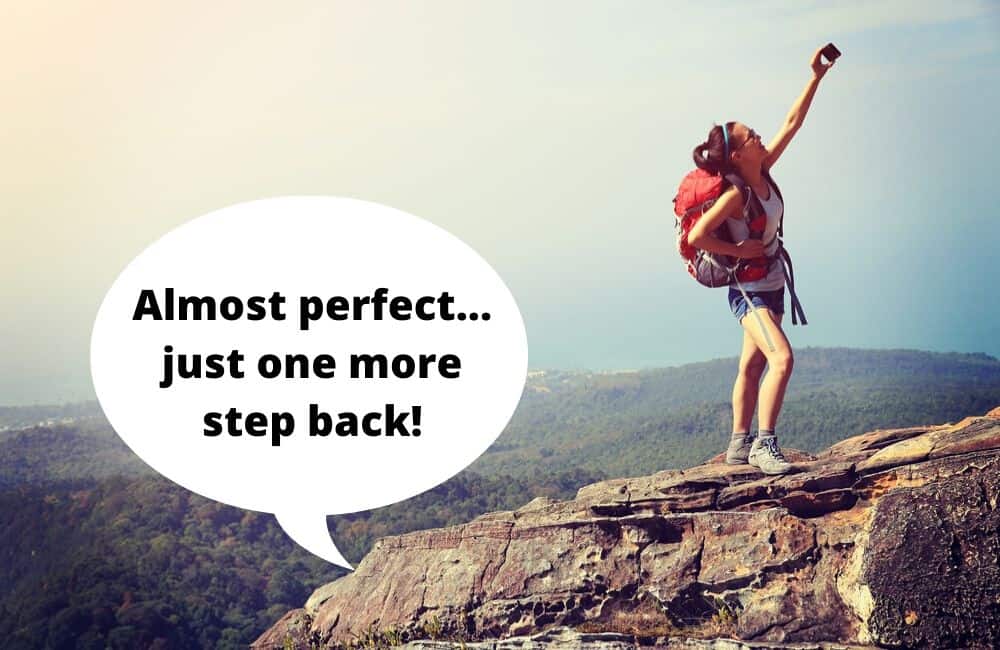Recently, I stumbled on an article about how millennials are all stressed out due to job precarity, debt and get this… social media.
The social media stress, I gather, is from striving to become an influencer.
WTF?
This isn’t the first time I’ve read accounts about influencers burning out. Here’s another article on YouTubers burning out.
It’s not reserved for aspiring influencers either. Established YouTubers making bank with millions of subs are stressed out.
The one exception is probably IG darling Kylie Jenner, but maybe she’s stressed too. After all she’s stuck trudging 250 wheelbarrow loads of cash to the bank after selling a stake in her cosmetics company for $600 mil.
Would 250 wheelbarrow loads be enough to haul $600 mil? There’s a fun math question for all ya math fans.
So what’s the problem here? Why is being an influencer stressful?
The answer is simple.
Being an influencer is like being on a treadmill 24/7.
I remember back in the day when getting free traffic on Facebook was easy. It was great in a way, but a total hassle in a way because you had to feed the algo beast every hour with another post.
But I and many other treadmill-hating bloggers realized we could just pay someone to post.
Problem solved.
Which brings us to the crux of the problem with the influencer business model which is you can’t outsource much of the work.
Your fans expect pictures, videos, etc. of you. It’s your show and they expect it frequently.
That means you need to produce and produce often.
Combined with “you’re only as good as your last vid/pic” you need to produce constantly. The never-ending treadmill.
And that’s what sucks about being an influencer.
Contrast that with niche sites.
My work on niche sites is done within 2 to 4 hours per day and that’s managing many sites.
The reason I can get away with so little work is because niche sites solve the two glaring problems of being an influencer:
Outsourcing is easy: My niche sites aren’t about me and how hot I look today. They’re informational. Any half-decent writer can serve the audience, so that’s what I do. I hire writers.
Residual revenue: My content doesn’t earn for 4 days and disappear. No sireeeee. I’m still earning thousands and thousands per month from content that’s a year+ older. It’s the residual effect from search which is one of the reasons I got into this biz to start with. I love working once and earning forever.
Why do people want to be an influencer?
I have no desire to be an influencer, but if I had to hazard a guess, here are a few reasons.
- Beats a 9 to 5
- Potential to earn lots of money
- Fame
- No boss
- No clients
- Work anywhere anytime
You know, the usual online perks.
Being an online publisher like yours truly meets all the above criteria except for fame. I ain’t famous from my niche sites. I have no desire to be famous. I’m happy hanging in the background anonymously while I haul my checks to the bank.
Ironically, Fat Stacks is somewhat of an influencer model business. If I outsourced the podcast, videos, forum moderation and my posts, it wouldn’t be the same. Maybe it would better, but it would definitely be different.
However, thanks to my niche sites, I don’t have much pressure with Fat Stacks. I do this largely for fun; although it does earn well. On the flip side, I do put a lot of time into Fat Stacks.
My point is I can relate to the never-ending pressure cooker of being in influencer in that there’s a lot involved when you’re the sole content producer on a site that you want to grow and make some bucks from.
TAKE-AWAY: As a business model, passive-earning niche sites are WAAAAAAAAAAY better than being an influencer… if you don’t care about becoming famous.
Remember, when starting a business, unless it’s a passion, assess whether you’re buying a job or building a business.
When you go the influencer route, you’ve created a job.
When you build passive-earning niche sites and blogs, you’re building a business.
Can you be an influencer and earn passive income?
Yeah, probably, but it would include publishing search-friendly content.
When I look at blogs of so-called influencers, I shake my head at the titles. While they may be catchy or cool, they’re missing out on search traffic big time. Why not go for both search and loyal audience traffic?
The ultimate solution
I know what you’re thinking so far. You’re thinking I missed the boat in that becoming an influencer is all about building up a loyal audience who visits every day.
You should be thinking that.
If you can create a blog or niche site where most of your traffic is direct, loyal readers, you have it made. Google updates scare you no longer. You’re bulletproof.
However, it helps the passive effort if you can do so with outsourced content. Not a necessity, but helpful.
Also, who says you can’t do both? Why forsake free, evergreen quality content from search when you can have your cake and eat it too?
That said…
I’d be remiss if I didn’t suggest that building a successful influencer business (i.e. brand) offers some benefits and that is it is less vulnerable to Google updates. This is a huge benefit. You’re probably more unlikely to get kicked off Instagram or YouTube unless you’re controversial. I think the influencer model is good, but it’s a ton of work and also takes a lot of time. It poses different risks than the niche site model driven by search traffic. Moreover, not everyone can be a successful influencer. I’m not and doubt I could be in any niche.

Jon Dykstra is a six figure niche site creator with 10+ years of experience. His willingness to openly share his wins and losses in the email newsletter he publishes has made him a go-to source of guidance and motivation for many. His popular “Niche site profits” course has helped thousands follow his footsteps in creating simple niche sites that earn big.






